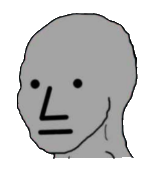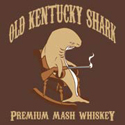|
glowing-fish posted:I've never seen a Wal-Mart in the middle of nowhere. Like, I would guess 85% of Wal-Marts are on a freeway exit, 10% are on a highway exit, and maybe 5% are not on a major road? You'll still see them out in real nowhere places in their original home territory, especially around Arkansas, though those stores are being closed increasingly more as time goes on - they're simply not profitable. All of the full nationwide expansion of Wal-Mart has sought the easiest places to service, usually as close to freeways as possible and if not then on a major highway leading to one relatively close by when that's relevant. And then whatever's the biggest road when you're really out in the country, next to whichever small town managed to hang on by being slightly bigger than the other 10 around it that are basically dead. When I say "full nationwide expansion", I mean like how as late as 1985 they still had no stores at all in Virginia/West Virginia/Ohio/Michigan or any states to the east and north of that line. And on the western border of their operating area there were no stores in Arizona, Utah, Wyoming, South Dakota/North Dakota or Minnesota, nor any states to the west of that including Hawaii and Alaska. Basically they weren't present in 29 states, and there were another 3 states that just had two or three stores, Colorado, Wisconsin and North Carolina. So Wal-Mart only operated in 21 states at all and 18 in full operation. By 1995 however, Wal-Mart was in all 50 states - and the New York Times noted that that location in Vermont which marked reaching into all 50 states was "To fit their 2,158th store into rustic Bennington, Wal-Mart planners abandoned their usual formula - a new building of 100,000- to 200,000-square-feet near highway exit ramps. Instead, the country's newest Wal-Mart is located in downtown Bennington, in a building of 50,000 square feet once occupied by an F.W. Woolworth's store."
|
|
|
|

|
| # ? May 10, 2024 12:07 |
|
This is curious to me: when people talk about non-chain and small retail, they are usually talking about boutique retail, which is usually thought to be aimed at hipsters or urbanites who like unique stores within walking distance. Chain retail, especially big box stores, is usually seen as the provenance of "rural" areas. Wal-Mart and McDonalds are taken by some to be the hallmarks of small town America. So the idea that there are places too small and too rural to be served by chains is something that people don't consider. And in a way, they shouldn't, because its a pretty small percentage of the US population. But it is there. A few weeks ago, I took a look at this route: the 350 miles on US-395, going from the California border to Pendleton, Oregon. (About the same as the 340 mile distance between Cleveland, Ohio and Louisville, Kentucky). In that 350 miles, someone would pass four supermarkets. (Two Safeways, and two Thriftways). They would pass one national pharmacy chain (Rite-Aid, in Burns). They would pass three Napa Auto Parts (In Lakeview, Burns and John Day). There are True Value Hardware stores in Lakeview and John Day and a Parr Lumber (Northwest Chain) in Burns. There is a Subway Sandwich station in each city, two Dairy Queens, and one McDonalds. Along with the gas stations, that is going to be the only national or even local chain businesses in that 350 miles of road. Everything else is either small local business, either appealing to tourists, or just cheap diners for local residents, independent grocery stores, or a book or craft store a retiree runs as a project. Its funny, because to a lot of people, the gaggle of freeway intersection businesses, the Walmart, the Home Depot, the Flying J Truck Stop, the combined Taco Bell/Kentucky Fried Chicken, the Cabelas, have all become synonymous with what "Small Town America" means, and people forget that there are still places where you can drive for 8 or 10 hours, and all you are going to see is local businesses and that a Dairy Queen is going to be a sign of the "big city" https://www.youtube.com/watch?v=v_RAp-_OHRQ
|
|
|
|
fishmech posted:You'll still see them out in real nowhere places in their original home territory, especially around Arkansas, though those stores are being closed increasingly more as time goes on - they're simply not profitable. All of the full nationwide expansion of Wal-Mart has sought the easiest places to service, usually as close to freeways as possible and if not then on a major highway leading to one relatively close by when that's relevant. Well, that is why I posted the video below: we are using very different definitions of "nowhere". Nowhere isn't a town of 3500 people 30 miles from a town of 30,000 people. Nowhere is a town of 300 people, 50 miles from a town of 2000 people, where you have one general store that is also the gas station, post office and diner. The difference is that the first group of towns is at some level, a market segment that major corporations spend time and money trying to reach. It might be 10% of the population, but exurban counties of 10-30,000 people are a big enough market segment that it makes sense to invest in them. They are close enough to distribution centers, and they have population densities, that it makes sense to invest money in them. There is also probably specific research directed to them. Somewhere in Cabela's corporate headquarters, there is a binder called "Appealing to the Vanity and Insecurity of the Aging Male in Exurban Counties" But there is a section of the US, maybe 1-4% of the population, that is pretty much off the radar as far as chain retail goes.
|
|
|
|
glowing-fish posted:One thing that I've learned from D&D is that most of the United States can't imagine a level of rurality too small to have Walmart. Like, exurban freeway exit is as small as it gets. Ohio has a rural population of 2,359,638 people. Idaho, Montana, Wyoming, North Dakota, and South Dakota have a combined rural population of 2,467,030. Hmm... I wonder why most people's impression of rural life is reflective of the East Coast
|
|
|
|
Squalid posted:Ohio has a rural population of 2,359,638 people. Idaho, Montana, Wyoming, North Dakota, and South Dakota have a combined rural population of 2,467,030. Hmm... I wonder why most people's impression of rural life is reflective of the East Coast Don't forget NY has 2.3 million rural people, Pennslyvania has 2.7 million, and virginia has 1.9 million.
|
|
|
|
I live in central Wyoming but I always feel like I have way more in common with someone from a featureless suburb attached to a city than to anyone really out in the sticks.
|
|
|
|
glowing-fish posted:Once again, the Dollar Tree proves itself to be the corvid of the retail world: everywhere and irrepresible: Reminds me of Cheap as Chips down under. There's something so wonderful about buying ridiculously cheap stuff. Even if it turns out to be poo poo and breaks, you can hardly bring yourself to care.
|
|
|
|
i'm in the suburbs now and it makes me so sad  we haven't sold the farm yet so i'm getting in a few days of high-quality frolicking in the meadow we haven't sold the farm yet so i'm getting in a few days of high-quality frolicking in the meadow
|
|
|
|
Dollar Tree is making a bet that the working poor are not going away or becoming better off any time soon, but will instead increase in number, and that's probably a safe bet.
|
|
|
|
glowing-fish posted:Well, that is why I posted the video below: we are using very different definitions of "nowhere". Nowhere isn't a town of 300 people, 50 miles from a town of 2000 people, where you have one general store that is also the gas station, post office and diner. Nowhere is a log cabin somewhere in a forest without roads inhabited by a hermit who didn't hear about the world war until last year
|
|
|
glowing-fish posted:Once again, the Dollar Tree proves itself to be the corvid of the retail world: everywhere and irrepresible: A lot of it's also a time management thing; as big box retailers got bigger and boxier, they also got less immediately convenient. Dollar Trees fill some of the gap left over from that. Like, for example, I'm currently out of Splenda for my coffee and forgot to get any at the store this weekend. I could go across town to the local giant supermarket and spend 20 minutes navigating its byzantine interface, or I could stop at one of the 19 dollar stores between home and work and get 1 month's worth of Splenda for 1 dollar.
|
|
|
|
|
fishmech posted:Don't forget NY has 2.3 million rural people, Pennslyvania has 2.7 million, and virginia has 1.9 million. I know! Some of those people live in such distant places, you can barely hear the freeway! (USER WAS PUT ON PROBATION FOR THIS POST)
|
|
|
|
Like, I know that for practical purposes, the 1-4% of the US population that lives outside of the scope of chain retail can pretty much be ignored in terms of looking at retail in the US as a whole. We don't really have to look at Jim's Diner and General Store for this discussion. Cabela's, and Donald Trump, very rightly sensed that when marketing to "rural" residents, you are marketing to people who are close to urban supply centers, live in towns large enough to support a specialty store, and that probably support their "rural" image and lifestyle with a bog standard job working for a big company. I get that part. I get that the very fact that these people living a pretty standard suburban lifestyle is why companies like Cabela's, and politicians like Donald J Trump, are so good at marketing to their insecurities by selling them a cartoon version of what "rural" is. This isn't a surprise. My point is just to remember that, just like there are still some "health food" customers who are shopping at local co-ops, and not at Whole Foods, there are rural people whose towns aren't Walmart and McDonalds. Of course they don't make a big difference in the market as a whole, but its nice to remember they are there.
|
|
|
|
blowfish posted:Nowhere isn't a town of 300 people, 50 miles from a town of 2000 people, where you have one general store that is also the gas station, post office and diner. I know this is a joke, but if you had to guess where the highest selling Kroger store was, where would you guess? Probably not Fairbanks, Alaska. But that is where it is: https://www.adn.com/business-economy/2016/12/05/fairbanks-loves-fred-meyer-and-the-sales-numbers-prove-it/ Basically, people who do live in the Alaskan Bush don't have a lot of options for shopping, so they go to Fairbanks, sometimes only a few times a year, to stock up. Its also the largest Fred Meyer store in the country, at 230,000 square feet.
|
|
|
|
Why are you putting the word rural in quotes. Rural has a well defined meaning used in a technical sense by the census bureau and other government agencies. Your bizarre and idiosyncratic use of the term conforms neither with the technical definition nor common use.
|
|
|
|
Squalid posted:Why are you putting the word rural in quotes. Rural has a well defined meaning used in a technical sense by the census bureau and other government agencies. Your bizarre and idiosyncratic use of the term conforms neither with the technical definition nor common use. Real answer: Companies like Cabela's, and politicians like Donald J Trump, have rural as a category that might not match up with demographic definitions of the Census. Both of them are marketing to $75,000 marketing managers in the suburbs as if they are really backwoods truckdrivers. Its a pretty good ruse: everyone involved believes it, including the people in this thread. glowing-fish fucked around with this message at 17:03 on Oct 16, 2017 |
|
|
|
Your use of the term does not match up with demographic definitions. In fact your weird made up definition is so far from what any reasonable person would expect as to make your statements nonsensical to any reasonable person without prior knowledge of how you are defining the term. 50+ percent of rural Americans live inside a metropolitan area. Most rural Americans live in places like Montgomery county Maryland, in the same residential tract housing as urban residents. This is not arguable, it is simply a fact derived from the well established institutional definition of the word which also happens to conform with how 99% of people understand its meaning.
|
|
|
|
Squalid posted:Your use of the term does not match up with demographic definitions. In fact your weird made up definition is so far from what any reasonable person would expect as to make your statements nonsensical to any reasonable person without prior knowledge of how you are defining the term. 50+ percent of rural Americans live inside a metropolitan area. Most rural Americans live in places like Montgomery county Maryland, in the same residential tract housing as urban residents. This is not arguable, it is simply a fact derived from the well established institutional definition of the word which also happens to conform with how 99% of people understand its meaning. Uh, no, they don't? Montgomery County Maryland only had 23,165 rural residents in 2010, and if they were in the same tract housing as the urban residents they'd form a continuous urban area, and be urban residents. Instead those rural residents are primarily scattered in amongst the remaining farms that haven't been turned into typical suburban housing, usually in small clusters of houses on the minor roads. Remember, to maintain an urbanized area you must merely keep to 1000 people per square mile which is 1.56 people per acre, easily achieved with standard suburban housing, and there's enough allowances for short discontiguity in strictly urban areas to catch any such tract housing in Montgomery County that would really qualify, giving the size and layout of that county. However I can assure you that a ton of the people in the straight up suburban areas of there would call themselves "rural".
|
|
|
|
There is a segment of the population that is what he describes. Think the duck dynasty crowd. Think country bar playing techno dance remixes of cotton eyed joe. They think they're rural. Sometimes they think they're southern even though grandpa washed dishes in Manhattan in the forties. They are a legitimate market segment.
|
|
|
|
#notallrurals
|
|
|
|
I once heard them referred to as "McRural".
|
|
|
|
BrandorKP posted:There is a segment of the population that is what he describes. Think the duck dynasty crowd. Think country bar playing techno dance remixes of cotton eyed joe. Obviously, but glowing fish doesn't get to arbitrarily redefine words to suit his arguments. And he especially shouldn't go around anally enforcing his interpretation of the correct (which is wrong by any reasonable interpretation) usage across the forum.
|
|
|
|
I don't think it really matters if he's using the textbook definition, the point is that you need different terms to describe such areas, and he picked some. If you think which words are used is important, suggest your own method of differentiating the two things.
|
|
|
|
The rural vs. urban divide, and what constitutes each classification is always an interest if mine. It's never quite clear cut. Part of the issue with sprawl and density is that many areas are pretty far from urban, but still technically in a metro area. For example, where I grew up the nearest chain restaurant, aside from the gas station Subway which only came in in the early 2000s, is a Dunkin Donuts that's a good 20 minute car ride away. But it's also got a relatively evenly spread but low population density, across a few small towns. It's "rural", but increasingly many of the homes were built or owned by New York/North Jersey commuters who were culturally anything but. It's not really "suburban", but it's not the sticks. The wierd part through was the whole "Duck Dynasty" effect on some of the folks who've been there for a while. Like, growing up nobody was like "yeah I'm a Proud Redneck who likes to drive my Lifted Dodge Ram and Roll Coal". But now a lot of the people I grew up with have definitely gone in that direction, partly as more urbanites move in. And it's not a race thing, since like 95% of the new residents are also white. For reference, this is in Northwestern New Jersey. It's also worth noting that many areas that are decidedly suburban or even urban, weren't that way that long ago, and many folks, boomers particularly, grew up when the area really was rural. Like, my current county on PA had over 160,000 acres of farmland in 1964. Now it probably has less than 50,000, and a lot of that is fragmented and perhaps used for rich (or "rich") horse owners. So a person in their 60s has seen a radical change in the landscape, population density wise. They're a "rural" person from their formative years, who's now stuck in a suburban landscape. LogisticEarth fucked around with this message at 19:26 on Oct 16, 2017 |
|
|
|
Squalid posted:Obviously, but glowing fish doesn't get to arbitrarily redefine words to suit his arguments. And he especially shouldn't go around anally enforcing his interpretation of the correct (which is wrong by any reasonable interpretation) usage across the forum. Words mean whatever we decide they mean. The segment of the population that identifies as rural that isn't, is redefining "rural". Generally where there is a language dissonance like this something interesting is going on. But I would agree with you if he was taking about mountains again. Edit: I think logisticsEarth is nailing it. ^^^ Bar Ran Dun fucked around with this message at 19:25 on Oct 16, 2017 |
|
|
|
BrandorKP posted:Words mean whatever we decide they mean. See that's what I'm sayin'
|
|
|
|
Squalid posted:Your use of the term does not match up with demographic definitions. In fact your weird made up definition is so far from what any reasonable person would expect as to make your statements nonsensical to any reasonable person without prior knowledge of how you are defining the term. 50+ percent of rural Americans live inside a metropolitan area. Most rural Americans live in places like Montgomery county Maryland, in the same residential tract housing as urban residents. This is not arguable, it is simply a fact derived from the well established institutional definition of the word which also happens to conform with how 99% of people understand its meaning. If you want to be pedantic, the census definition of the areas he is describing would be "frontier and remote areas" or something like that, and he's making valid observations about the differences between those areas (which, despite their low population make up vast areas of the western US in particular), and the "other", more populous rural america. There was a Washington Post (I think) article like a year ago discussing these differences and the difference between "culturally" rural areas and economically rural areas that is interesting. But I can't find it now. Anyway, as you note the majority of rural Americans live inside a metropolitan area, in similar houses and communities as urban and suburban residents. But a lot of rural culture emphasizes a lifestyle more in common with what now only exists in extremely remote areas. I think it's an oversimplification to say that 99% of people understand the word "rural" to mean living in residential tract housing 2 miles away from a strip mall with the same Target, Walmart, Chipotle and Starbucks that you would find in the suburbs of the SF bay area. Increasingly, living in "rural" America is less differentiated by any major physical or economical differences and has more to do with whether your shopping center has a Whole Foods or a Bass Pro in it. And yet, culturally, people living in such "rural" communities identify more closely with the people living in the sparse mountain west than they do with the coastal suburbanites their lifestyle more closely resembles.
|
|
|
|
"Rural" is starting to basically mean "white working class." Even if they are most certainly in a town or city.
|
|
|
|
Yeah it's weird how "rural" has started to become less about your distance to a city and more your cultural/ideological distance from "urban culture". You'll get people living in cramped tract home suburbs with barely a back yard yelling about how they're against the new sidewalks in their area because it "destroys the rural charm" of their neighbourhood. You'll have people living in these same fairly dense suburbs, once again not exurbs or 1 acre lots, super cramped newish cheek to cheek suburbia, yelling about their rural pride and how as rurals they all need to drive big extra wide trucks so those new bike lanes are a big city attack on their rural values, and their taxes paying for transit is taxing their rural lifestyle to death and so on. They feel totally rural as they drive their spotless 6-tire superduty with a huge cattle ram on the front to the big new gleaming shopping centre only 10min away next to the light rail stop and a bunch of 10 story apartments because that shopping centre has a bass pro in it. I mean they totally go hunting maybe once a year or two, and they have a trailer for their dirt bikes or quad which they need to drive 40 min away to use. But they're totally rural because they are against the expansion of transit and bike lanes and they tell it how it is when it comes to muslim immigrants.
|
|
|
|
It's another way to say white.
|
|
|
|
BrandorKP posted:It's another way to say white. White but NOT a yuppie or SJW bike socialist! Those guys shop at different parts of the same shopping centre near my house!
|
|
|
|
it's much easier to categorise "rural" vs "non-rural" in australia if you have a pack of dogs for hunting pigs, you're rural if you don't, you're not
|
|
|
|
Some of the sub-urbans that think they are rural do that. The dogs for pig hunting that is. Kind of lovely when people have a pack of dogs on a half acre for that.
|
|
|
|
Morbus posted:
That wasn't a Washington Post article, that was a medium article, it was written by me. Which I guess if I am trying to point out that my belief makes sense and is not just my personal windmill to tilt at, isn't a point in my favor. Anyway, here it is: https://medium.com/@mnharris/there-are-two-rural-americas-720b382bf092 glowing-fish fucked around with this message at 00:40 on Oct 17, 2017 |
|
|
|
Geography isn't the only alienation by isolation.
|
|
|
|
Squalid posted:Obviously, but glowing fish doesn't get to arbitrarily redefine words to suit his arguments. And he especially shouldn't go around anally enforcing his interpretation of the correct (which is wrong by any reasonable interpretation) usage across the forum. Since this is the retail thread, though, my definition makes sense. Say it is 7 PM on a Sunday evening, and you realize that you need new pillowcases, a complete DVD collection of McGuyver, and a digital camera. Whether you live in Rockville, Maryland or Lohman, Missouri, this experience is going to be pretty much the same: there are Walmarts and Targets within a 20 minute drive, you are going to go there and have anything you can possibly normally want, available 24 hours a day. You come home, watch 4 hours of McGuyver and realize that you could really go for some Taco Bell, and also your wife bought the wrong toothpaste the other day, so at 2 AM you go to back to town and pick up some Taco Bell and the good toothpaste. Etcetera: as long as people have 24/7 (or at least 18/7) access to the same chains that offer anything, the distinction between rural and suburban seems pretty meaningless. There is also a weird horseshoe theory thing going on, as applied to retail. Because one of the things about very rural locations and urban locations is that is where independent and non-chain businesses form a large part of people's retail experience. That is where independent stores, personalized attention and community integration are the most important. In a town/area of less than 2500 people, you probably get your coffee at Joe's Coffee Shack, where Joe knows how you like it ordered and asks about your dogs. From 2500 to 250,000, you are in the suburban zone: you go to Starbucks (probably by car), and its like every Starbucks everywhere. Then about 250,000, you get back into cities, where you have an old brick stone front coffee shop and Daphne knows how you like your Fair Trade tea and she tells you about graduate school.
|
|
|
|
glowing-fish posted:That wasn't a Washington Post article, that was a medium article, it was written by me. I enjoyed this very much, thank you.
|
|
|
|
FistEnergy posted:I enjoyed this very much, thank you. Maybe I should make my points by articulating them better and providing evidence, and not just by trying to troll people? And thank you, I am glad you liked it.
|
|
|
|
glowing-fish posted:Since this is the retail thread, though, my definition makes sense. So you go on Amazon and it shows up in the mail, no matter where you live in the country. glowing-fish posted:Maybe I should make my points by articulating them better and providing evidence, and not just by trying to troll people? If you actually want productive discussion, sure. If you want to run your "here is my personal definition of rural that everyone must agree to before we can talk" gimmick into the ground, feel free, but it's loving annoying as poo poo.
|
|
|
|

|
| # ? May 10, 2024 12:07 |
|
WampaLord posted:So you go on Amazon and it shows up in the mail, no matter where you live in the country. Except if you order it in some places it arrives 30 minutes later and if you order it in other places it arrives a week or more later.
|
|
|













 I CANNOT EJACULATE WITHOUT SEEING NATIVE AMERICANS BRUTALISED!
I CANNOT EJACULATE WITHOUT SEEING NATIVE AMERICANS BRUTALISED!












